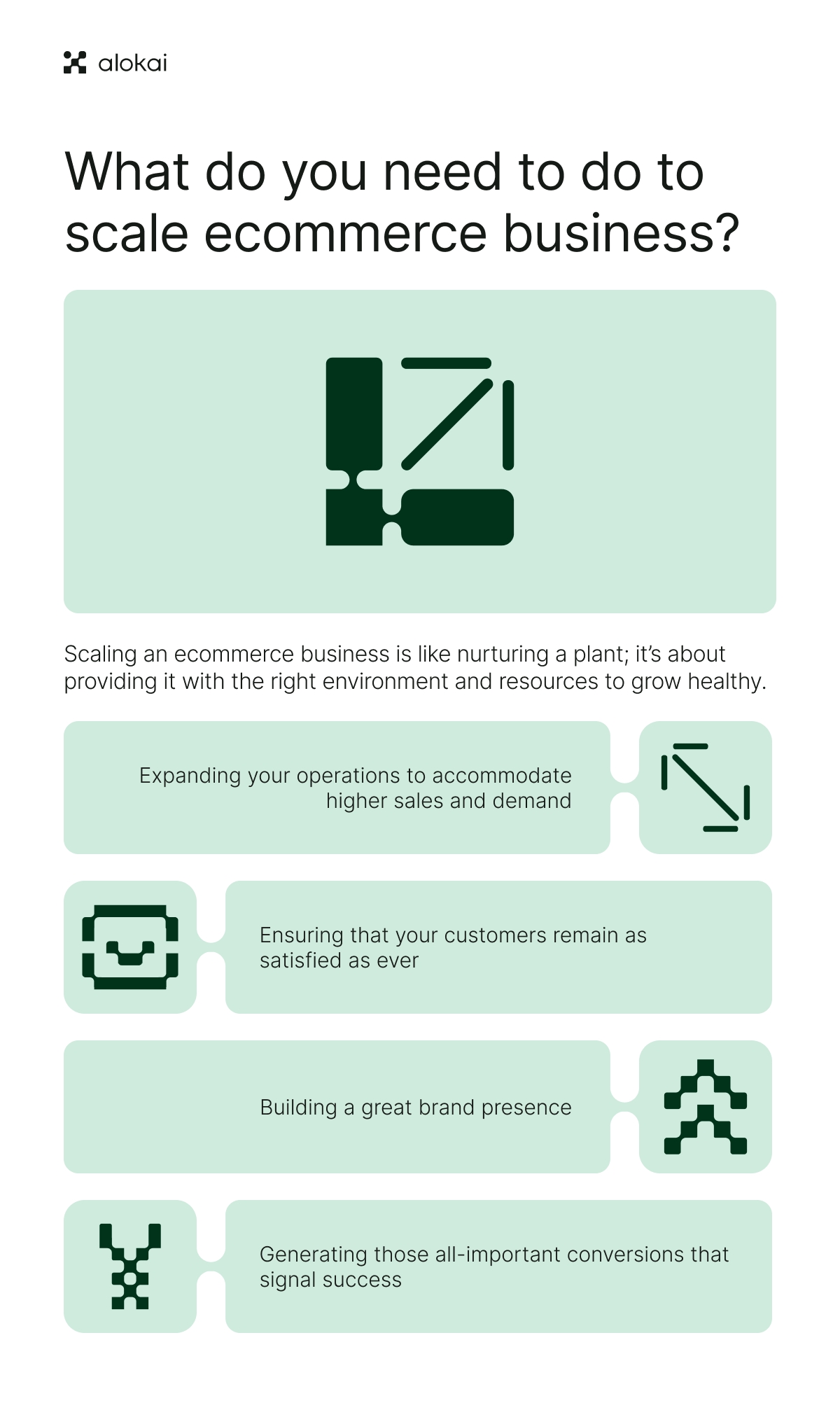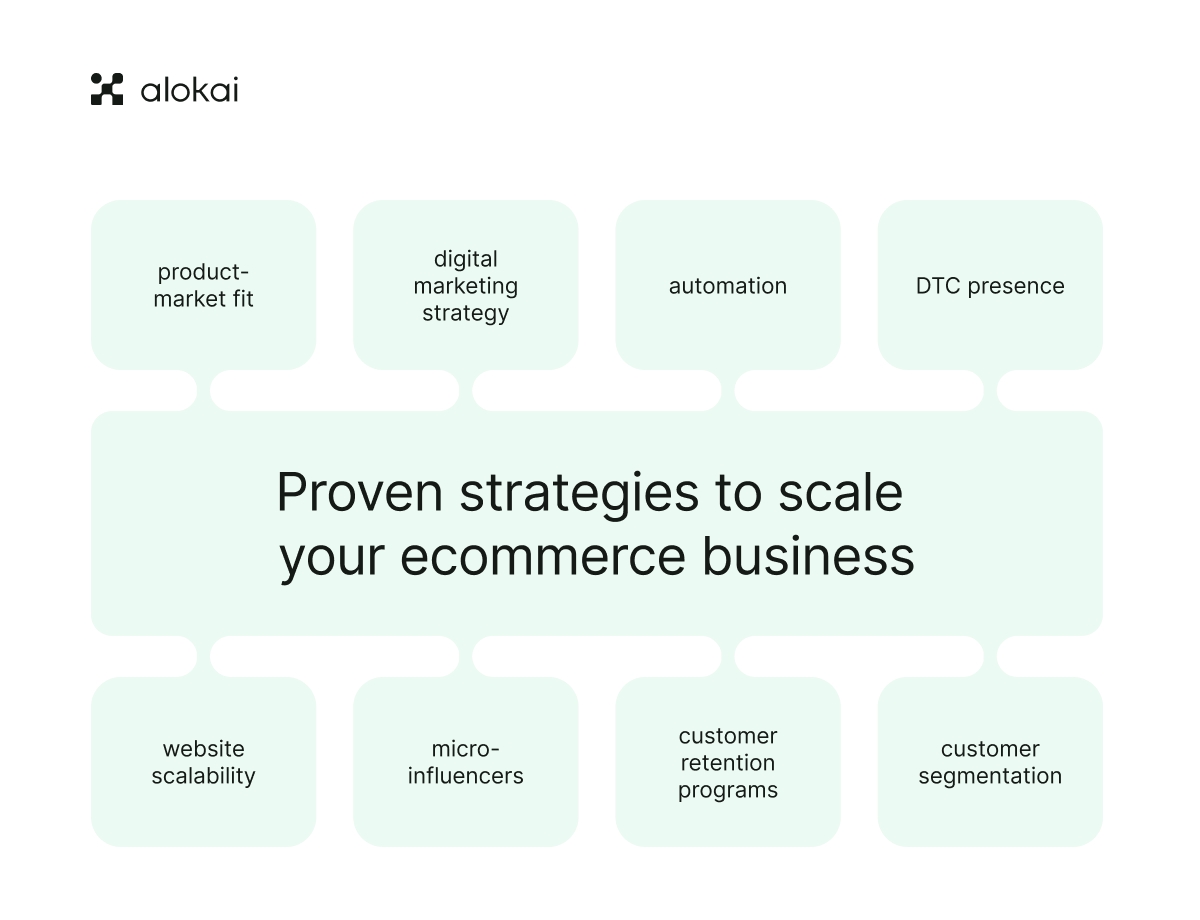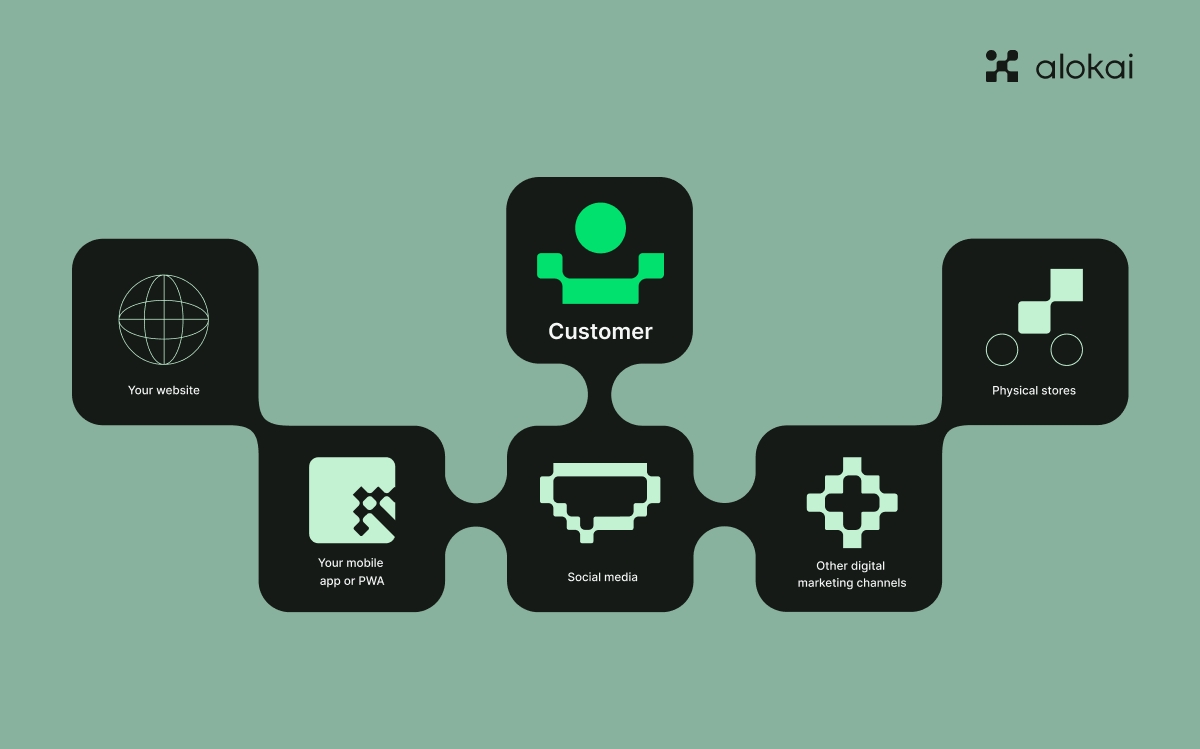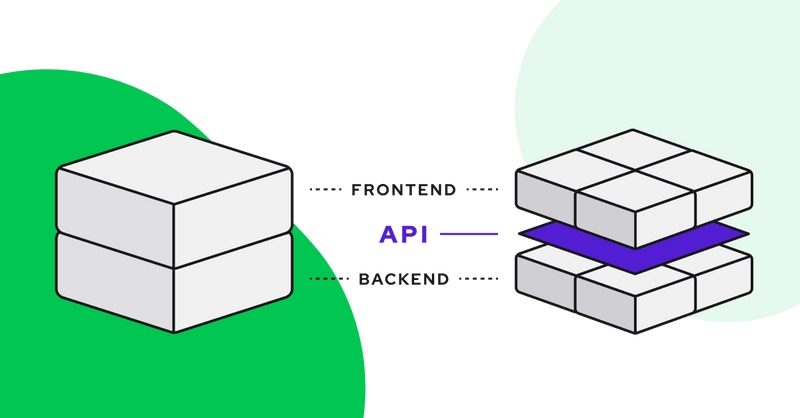Scaling an ecommerce business is essential for growth and long-term success. Whether you’re seeing increased demand or planning for future expansion, knowing how to scale an ecommerce business effectively can set you apart from the competition. This guide covers proven strategies to help you handle higher sales, enhance customer satisfaction, and build a strong brand presence. Discover how to optimize your operations, leverage technology, and implement marketing tactics to take your business to the next level.
Key takeaways
- Ensure a strong product-market fit and expand your product lines to meet evolving customer needs and enhance brand value.
- Invest in a robust digital marketing strategy, leveraging SEO, content marketing, and social media advertising to build an online presence and drive traffic.
- Leverage automation tools to optimize resources, streamline operations, and enhance customer engagement, allowing for scalable and efficient growth in your ecommerce business.
Understanding the concept of scaling in ecommerce
Scaling an ecommerce business is akin to nurturing a plant; it’s about providing it with the right environment and resources to grow robust and healthy. In the world of online retail, business growth and scaling entails:
- Expanding your operations to accommodate higher sales and demand
- Ensuring that your customers remain as satisfied as ever
- Building a formidable brand presence
- Generating those all-important conversions that signal success.

Yet, scaling is not without its challenges. As your ecommerce business blossoms, you’ll encounter hurdles such as fierce competition, complex logistics, and the ever-critical goal of retaining customers. Investing in infrastructure and the right tools is paramount to navigate this landscape efficiently. Strategic scaling also involves attracting new customers and seducing those who flirted with your offerings but didn’t commit, fostering sustainable growth through innovative marketing and an exceptional user experience.
Proven strategies to scale your ecommerce business
Ready to propel your ecommerce business into its next stage of growth? It’s time to explore eight proven strategies that will act as stepping stones on your path to expansion. These strategies, from ensuring product-market fit to prioritizing website scalability, will contribute uniquely to your growth narrative, setting the stage for your business to flourish.
Ensure product-market fit
The cornerstone of a successful ecommerce business is a solid product-market fit. It’s about focusing on the market's pulse, understanding your target audience’s needs and desires, and ensuring your product lines meet them. Conducting thorough market research is vital, as it informs product development and helps you to fine-tune your offerings, making them irresistible to your customers.
But why stop at what’s working now? Expand your horizons by introducing complementary products that enhance your brand and provide added value to your customers. This boosts your potential revenue and strengthens customer relationships by positioning your business as a one-stop shop for their needs.

Build a robust digital marketing strategy
A robust digital marketing strategy is the wind beneath the wings of an ecommerce business aiming for the skies. It’s a continuous effort, a marathon rather than a sprint, that combines search engine optimization (SEO), content marketing, and social media advertising to build a formidable online presence. SEO is your secret weapon, helping your ecommerce store appear in relevant search results, drawing in traffic that could convert into sales.
Content marketing then takes the stage, attracting more traffic with high-quality blog posts, videos, and other engaging content that establishes your authority in the industry. Complement this with targeted social media advertising and partnerships with influencers, and you create a digital marketing ecosystem that drives traffic and fosters lasting customer relationships.
Leverage automation tools
In the digital age, time is a currency, and automation tools are the mint. By automating inventory, fulfillment, and customer service, you optimize resources and free up precious time for critical tasks such as:
- crafting compelling marketing campaigns
- analyzing data and making strategic decisions
- building relationships with customers
- researching and developing new products or services
Automation also allows for personalization at scale, sending the right message to the right customer at the perfect time through channels they frequent.
Chatbots, for instance, can provide round-the-clock customer service for basic inquiries, while live chat and phone support tackle more complex issues. This improves efficiency and enhances customer engagement, making your ecommerce platform a well-oiled machine ready to scale.
Develop a strong DTC presence
In today’s ecommerce landscape, a strong direct-to-consumer (DTC) presence is no longer optional; it’s critical for your online business. By establishing a robust online store, you meet your customers where they are: online. This move expands your brand’s reach and drives ecommerce sales, as customers appreciate the convenience and direct line to your products and services.
A DTC strategy encourages customers to engage directly with your brand, fostering a sense of community and loyalty. Through relevant content and personalized experiences, you can cultivate a customer base that feels connected to your brand and is more likely to:
- Return for repeat purchases
- Recommend your brand to others
- Engage with your brand on social media
- Provide feedback and reviews
- You can build a strong and loyal customer base by implementing a DTC strategy.
Optimize customer segmentation
Digging into the data can reveal a treasure trove of insights, and when it comes to scaling your ecommerce business, customer segmentation is the map to that treasure. By segmenting your audience, you can:
- Tailor marketing emails and campaigns to resonate with specific groups based on their behaviors and interests
- Increase the efficacy of your marketing efforts
- Enhance the customer experience
- Lead to higher engagement and conversion rates
The more personalized and relevant your communication, the more likely you are to see a return on your investment. Remember, a message that strikes a chord with one segment of your target audience might not resonate with another. Tailor your approach and watch your business grow.
Invest in customer retention programs
While acquiring new customers is exciting, the true art of scaling an ecommerce business lies in customer retention. It’s a known fact that retaining an existing customer is five times cheaper than wooing a new one. Rewarding existing customers through retention programs, such as loyalty programs and exceptional customer service, turn one-time buyers into loyal fans who contribute to your bottom line over the long term.
But what makes a customer stick around? The answer lies in:
- The quality of your product
- The experiences you provide
- Implementing a loyalty program to encourage repeat business
- A robust email marketing strategy to keep your audience engaged between purchases
- Excellent customer service, which can turn a dissatisfied customer into a brand ambassador.
Utilize micro-influencers
In the bustling world of social media, micro-influencers are the unsung heroes of marketing. They may not have the millions of followers that their macro counterparts boast, but their audiences are engaged and loyal. By partnering with micro-influencers, you tap into these tight-knit communities, offering an authentic and cost-effective way to promote your products.
The beauty of micro-influencers lies in their ability to:
- Create word-of-mouth advertising that feels genuine and trustworthy
- Sway the purchasing decisions of their followers, often leading to increased sales for your ecommerce store
- Require minimal resources compared to more extensive campaigns
- Scale as your business grows
- It’s a strategy that can have a big impact on your business.
Prioritize website scalability
The digital storefront is the face of your ecommerce business, and its ability to scale is crucial for long-term success. A scalable website ensures that, as your traffic grows, your site remains fast, reliable, and user-friendly. In today’s fast-paced online world, a slow-loading page can be the difference between a sale and an abandoned cart, with 53% of mobile users abandoning sites that take longer than three seconds to load.
Investing in scalable hosting is a wise move, as it ensures your website can handle surges in traffic without a hitch. By prioritizing website scalability, you safeguard your online presence, ensuring that your ecommerce store can withstand the ebbs and flows of internet traffic and continue delivering an exceptional customer experience.
Implementing omnichannel strategies

Scaling your ecommerce business is not just about growing in one direction; it’s about expanding your reach across multiple platforms and touchpoints. Implementing omnichannel strategies ensures your customers enjoy a seamless and integrated shopping experience, whether they’re browsing on a mobile app, clicking through on social media, or walking into a brick-and-mortar store.
Integrate sales channels
The modern shopper doesn’t limit themselves to a single platform, and neither should your ecommerce business. By integrating sales channels like your online store, social media platforms, and even physical retail spaces, you create a cohesive ecosystem that caters to your customers’ preferences. This integration ensures that inventory is consistent across channels and that the customer experience remains unified, regardless of how or where a purchase is made.
Sales channel integration offers several benefits, including:
- Consolidation of customer data, which is invaluable for understanding purchasing behaviors and preferences
- Ability to provide personalized experiences that resonate with your customers
- Encouragement of repeat business
Enhance customer experience across channels
Exceptional customer experience is the golden thread that ties together all successful omnichannel strategies. By ensuring that your messaging and branding are consistent across all platforms, you create a reliable and trustworthy image for your ecommerce store, ultimately providing awesome customer service and avoiding poor customer service.
Key strategies for creating an exceptional customer experience include:
- Personalizing the shopping experience
- Providing relevant and targeted communications
- Offering seamless and convenient shopping options
- Providing excellent customer service and support
By implementing these strategies, you can create a positive and memorable experience for your customers, leading to increased loyalty and sales.
To enhance the customer experience further, consider the following:
- Invest in a user-friendly website design that is accessible on all devices
- Provide live chat support for real-time assistance
- Showcase high-quality images, detailed product descriptions, and customer reviews to build trust and transparency with your shoppers
- Offer fast shipping and excellent customer service
These elements, combined, will keep your loyal customers satisfied and loyal.
The role of composable commerce in scaling

In the rapidly changing landscape of the ecommerce industry, composable commerce emerges as a beacon of flexibility and scalability. It’s an approach that empowers businesses to adapt quickly to market demands, integrate new technologies seamlessly, and craft a unique online store that stands out from the competition.
Benefits of composable commerce
Composable commerce is a game-changer for ecommerce businesses looking to scale. This modular approach allows you to tailor your technology stack, selecting the best components for your specific needs and seamlessly integrating them into your system. With plug-and-play convenience, your business can launch new features with ease and respond swiftly to market changes.
The beauty of composable commerce lies in its:
- Flexibility
- Ability to provide a personalized, engaging shopping experience
- Faster time-to-market for new product launches
- Scalability as your business grows, without the need for costly and time-consuming overhauls.
Implementing composable commerce
Implementing composable commerce means embracing a modular approach where each piece of your ecommerce puzzle fits perfectly, allowing for easy adjustments and scalability. This system is designed to grow with your business, enabling you to scale up individual components as needed without a complete system overhaul.
By adopting composable commerce, you can ensure that every aspect of your ecommerce operations—from the storefront to third-party shipping integrations—works together harmoniously, running your ecommerce business efficiently. It’s a forward-thinking strategy that sets your business up for continuous innovation and growth, ready to meet the ever-evolving needs of the digital marketplace.
Measuring and optimizing performance metrics
To truly understand the success of your scaling efforts, you must measure and optimize performance metrics. These metrics provide a clear picture of how your ecommerce business is performing, highlighting areas of strength and pinpointing opportunities for improvement.
Key metrics to monitor
The pulse of your ecommerce business can be felt through key metrics such as the sales conversion rate (CVR), average order value (AOV), and customer lifetime value (CLV). These metrics offer insights into your customers’ behavior and the health of your business, allowing you to make data-driven decisions. Monitoring the shopping cart abandonment rate, for instance, can reveal friction points in the purchase process that need to be smoothed out.
But it’s not just about tracking sales; understanding your customer acquisition costs (CAC) and cost per acquisition (CPA) is crucial in evaluating the efficiency of your marketing efforts. By keeping a close eye on these metrics, you can fine-tune your strategies to maximize return on investment and ensure that your business remains on a steady growth trajectory.
Continuous improvement
The journey of scaling an ecommerce business is one of continuous improvement. Regularly reviewing metrics allows you to swiftly identify trends and adjust your strategies accordingly. Whether it’s a weekly review to assess the impact of recent marketing campaigns or a monthly check-up to evaluate long-term business health, staying on top of your data is key to maintaining momentum.
Iterative testing and making data-driven adjustments form the backbone of a successful scaling strategy. By constantly refining your approaches based on customer feedback and performance metrics, you can enhance marketing effectiveness and elevate the customer experience, ensuring your ecommerce business achieves constant customer growth and thrives.
Summary
Scaling an ecommerce business is a multifaceted endeavor that requires attention to detail, strategic planning, and a commitment to continuous improvement. From ensuring product-market fit to leveraging the power of composable commerce, each strategy discussed is a crucial piece of the puzzle in building a successful ecommerce empire. By implementing omnichannel strategies and optimizing performance metrics, you’ll be well on your way to creating an online business that meets and exceeds customer expectations. Let the journey of scaling be a thrilling challenge that pushes your business to new heights and solidifies your footprint in the digital marketplace.
